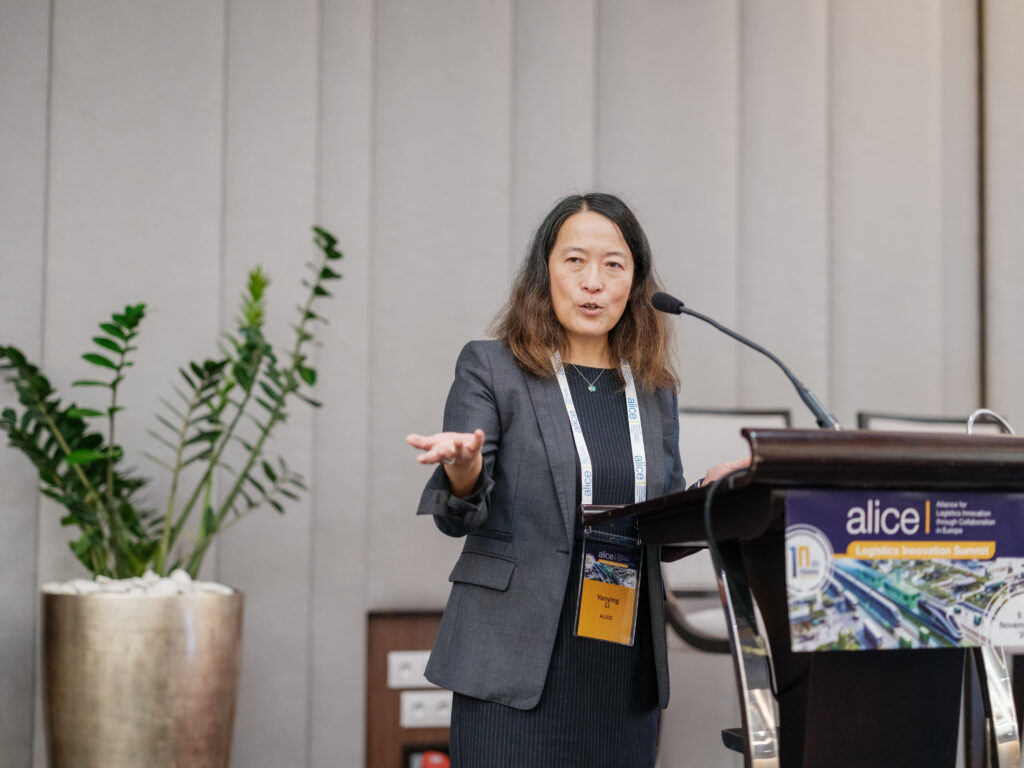Wednesday, December 11th, 2024
The ALICE Logistics Innovation Summit session titled “From R&I to impact generation: take up and scaling up” explored the steps needed to bridge the gap between research and innovation (R&I) outcomes and their successful adoption in industry. The discussion emphasised actionable strategies for turning innovative project results into scalable, market-ready solutions that deliver tangible value.
The session was moderated by Michael Archer, Customer Collaboration Director at Zero Waste World, CHEP. Jan Tore Pedersen, CEO of Marlo and Yanying Li, Head of Programmes and Knowledge Management, ALICE, shared insights on overcoming challenges of aligning R&I outcomes with market needs, fostering collaboration, and ensuring long-term impact for the logistics sector.
Key takeaways
Aligning research outputs with industry needs
A significant barrier to the uptake of R&I results is the mismatch between research objectives and market readiness. To overcome this, projects need to prioritise practical prototypes and early engagement with potential users. Creating fully functional prototypes as early as possible in the project lifecycle allows for faster testing and iterative improvements, ensuring that solutions are both feasible and desirable for the market.
Successful projects were highlighted as those that:
Examples such as the iCargo initiative and MIXMOVE showed how these elements can lead to measurable improvements, including increased utilisation and operational efficiency.
Overcoming barriers to market adoption
Despite strong innovation potential, many R&I projects struggle to move from pre-commercial stages to fully scalable solutions. Challenges include:
These barriers highlight the need for continuous dialogue between researchers, businesses, and policy makers to ensure alignment throughout the project lifecycle.
Best practices for scaling up innovation
The session provided actionable recommendations for R&I projects seeking to maximise their impact:
Recognising and supporting innovation
To encourage the uptake and scaling of high-impact R&I outcomes, the session introduced the ALICE Logistics Innovation Award 2025 Edition. The award recognises projects that have successfully transitioned from research to market impact, showcasing solutions that have demonstrated significant value through adoption or policy influence. The award aims to:
The award is an important platform for recognising excellence in logistics innovation and applications will be accepted shortly.

The session underscored the importance of bridging the gap between research and market implementation to drive meaningful change in the logistics sector. By focusing on practical prototypes, fostering collaboration, and aligning with market needs, R&I projects can deliver scalable solutions that enhance efficiency, sustainability, and competitiveness.
For more insights and to get involved in shaping the future of logistics, explore the ALICE Summit website and consider joining ALICE to collaborate with our network of experts to shape the future of logistics innovation. Together, we can turn research into impactful solutions for a sustainable and efficient logistics ecosystem.
